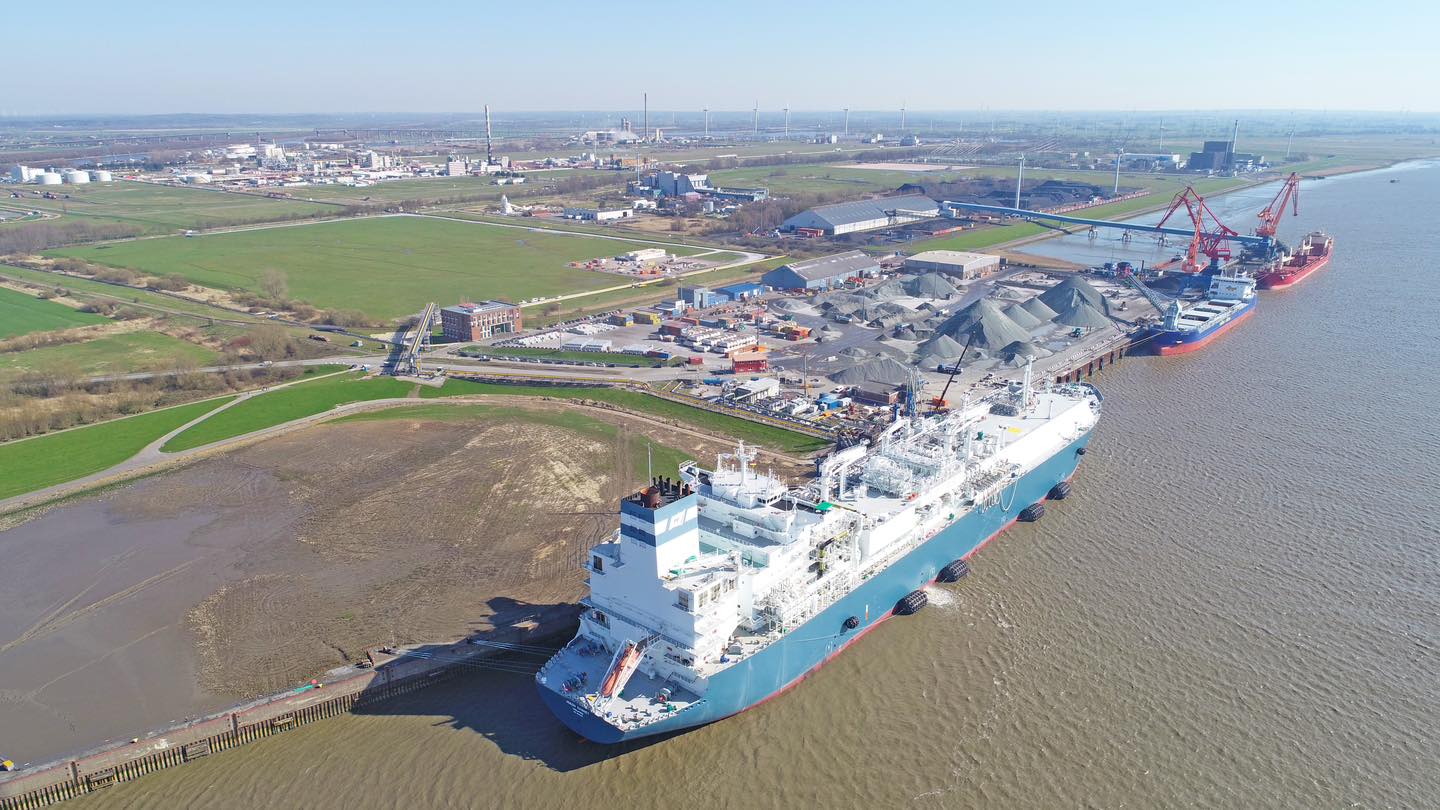The 170,000-cbm FSRU Hoegh Gannet, which serves the Elbehafen LNG import terminal in Germany’s Brunsbüttel, has received its second LNG cargo, according to German energy firm RWE.
RWE, which developed the project with Hoegh LNG, Brunsbüttel Ports, and other partners on behalf of the German government, said last month that the FSRU began supplying regasified LNG to the grid on March 22.
The FSRU-based terminal received its first LNG tanker on February 14 from UAE’s Adnoc.
A spokesman for RWE told LNG Prime late on Wednesday that the FSRU-based facility received its second LNG tanker as part of the commissioning phase.
As previously reported by this publication, the 2021-built 174,000-cbm, Gui Ying, delivered the cargo from the Cove Point LNG export plant in the US to Brunsbüttel.
This LNG carrier, owned by CSSC Shipping and chartered by trader Gunvor, completed the ship-to-ship operation and left the the FSRU-based facility on Wednesday, its AIS data provided by VesselsValue shows.
Commercial ops
In recent weeks, the Elbehafen LNG terminal has undergone legally required technical tests and assessments by experts and authorities, the spokesman said.
“These are almost complete and the FSRU is in the continuous regasification process,” he said.
Also, with the start of commercial terminal operations by the government-owned Deutsche Energy Terminal GmbH (DET), the next step will be the “regular operation” of the terminal, the spokesman said.
DET was established at the beginning of 2023 and will operate this terminal and other four government-backed FSRU-based facilities.
RWE will then be responsible for the technical and operational operation of the terminal in Brunsbüttel, the spokesman added.
Hoegh Gannet, which the German government took on charter from Hoegh LNG, will initially operate at the Brunsbüttel Port’s existing dangerous goods berth.
From the end of 2023, the FSRU will work from a new jetty to the west of the Elbehafen and Brunsbuettel Ports will build and operate this jetty.
This is Germany’s third FSRU-based facility after the launch of terminals in Wilhelmshaven and Lubmin.
In addition, three more such terminals are expected to come online in Germany by next winter.

